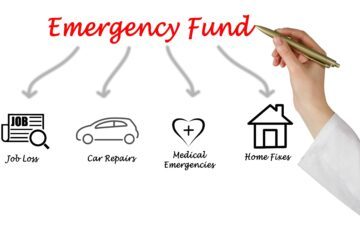Investing in Rental Properties: Is It Right for You?
If you’re looking to build wealth and generate passive income, investing in rental properties could be an attractive option. Owning rental real estate has created many success stories of people building significant net worth over time. However, it’s not a get-rich-quick scheme and there are downsides to consider as well. Before taking the plunge into becoming a landlord, it’s important to carefully evaluate if rental property investing aligns with your goals, risk tolerance, and willingness to take on the responsibilities of active management.
The Advantages of Investing in Rental Properties
One of the biggest draws of rental properties is the ability to build equity over time as your tenants essentially pay down your mortgage through their rent payments. As you pay off more of the mortgage, you gain greater ownership stake and your equity increases. This allows you to benefit from appreciation in the property’s value fueled by real estate market growth and any improvements or renovations you make. Over long holding periods of 15-30 years, this equity accumulation can be substantial.
Additionally, the rental income you collect can provide a reliable monthly cash flow stream. Although part of the rent needs to go towards expenses like the mortgage, property taxes, repairs, and vacancy periods, the majority can drop straight to your bottom line as passive income. As rental rates rise over time, this income stream has the potential to steadily increase as well.
Owning rental real estate also comes with some favorable tax treatment. You can deduct operating expenses, mortgage interest, property taxes, insurance, HOA fees, and depreciation from your rental income. Depreciation is a non-cash deduction that allows you to deduct a portion of the property’s purchase price annually as it gets older and depreciated in value. This helps shield some rental cash flow from taxes.
The Disadvantages of Investing in Rental Properties
While there are attractive benefits, rental property investing isn’t all sunshine and rainbows. It requires taking on a lot of responsibilities and risks compared to more passive investment vehicles like stocks and bonds.
As a landlord, you’ll be on the hook for making repairs and covering maintenance costs on the property whenever issues arise. Managing tenants, screening applicants, collecting rent, complying with housing laws/regulations, and keeping up with market rental rates are all duties you’ll need to take on or pay a property manager to handle.You’ll also face the risk of extended vacancy periods where the property sits empty without any rental income coming in.
There’s significant financial risk too. Rental properties require a large upfront investment in the form of a down payment and loan. If you take out a mortgage, you’re accepting the risks of leverage that come with debt – paying interest, being on the hook for the full loan balance, and potential foreclosure consequences. Additionally, there are carrying costs like the mortgage, taxes, insurance and maintenance that have to be paid regardless of whether the property is occupied or not. Insufficient income from low rental rates or high vacancies could mean operating at a loss for stretches of time.
Non-financial risks exist as well. Dealing with tenants, maintenance contractors, and other issues related to active management can be major headaches and consume large amounts of your time and effort. There’s also the potential for physical property damage from tenants, weather events, or natural disasters that would require costly repairs or even total loss. While insurance helps mitigate some risks, it can’t cover everything.
Is Becoming a Rental Property Investor Right for You?
Investing in rental properties isn’t just about earning returns, it’s about taking on a specialized form of active investing that comes with unique obligations and risks. You have to be comfortable taking on the roles of landlord, property manager, handyman, and more.
It requires careful research into your local real estate market to identify areas with strong, stable rental demand and cash flowing properties. You’ll need to get familiar with fair housing laws, tenant screening best practices, and understand your rights and responsibilities as a landlord. Having a plan for financing, managing cash flow gaps, dealing with issues like evictions or major repairs, and an overall exit strategy is critical as well.
If you don’t have the time, temperament, capital or desire to take on such hands-on work and responsibilities, then rental properties are likely not the right investment for you. However, for those up for the challenge and with the capabilities to navigate the demands of active rental ownership, it can prove to be a lucrative wealth building strategy over the long-term. Taking an educated approach and doing your homework is key before taking the plunge into becoming a landlord. In the right circumstances, investing in rental properties could be the pathway to achieving your financial goals.




